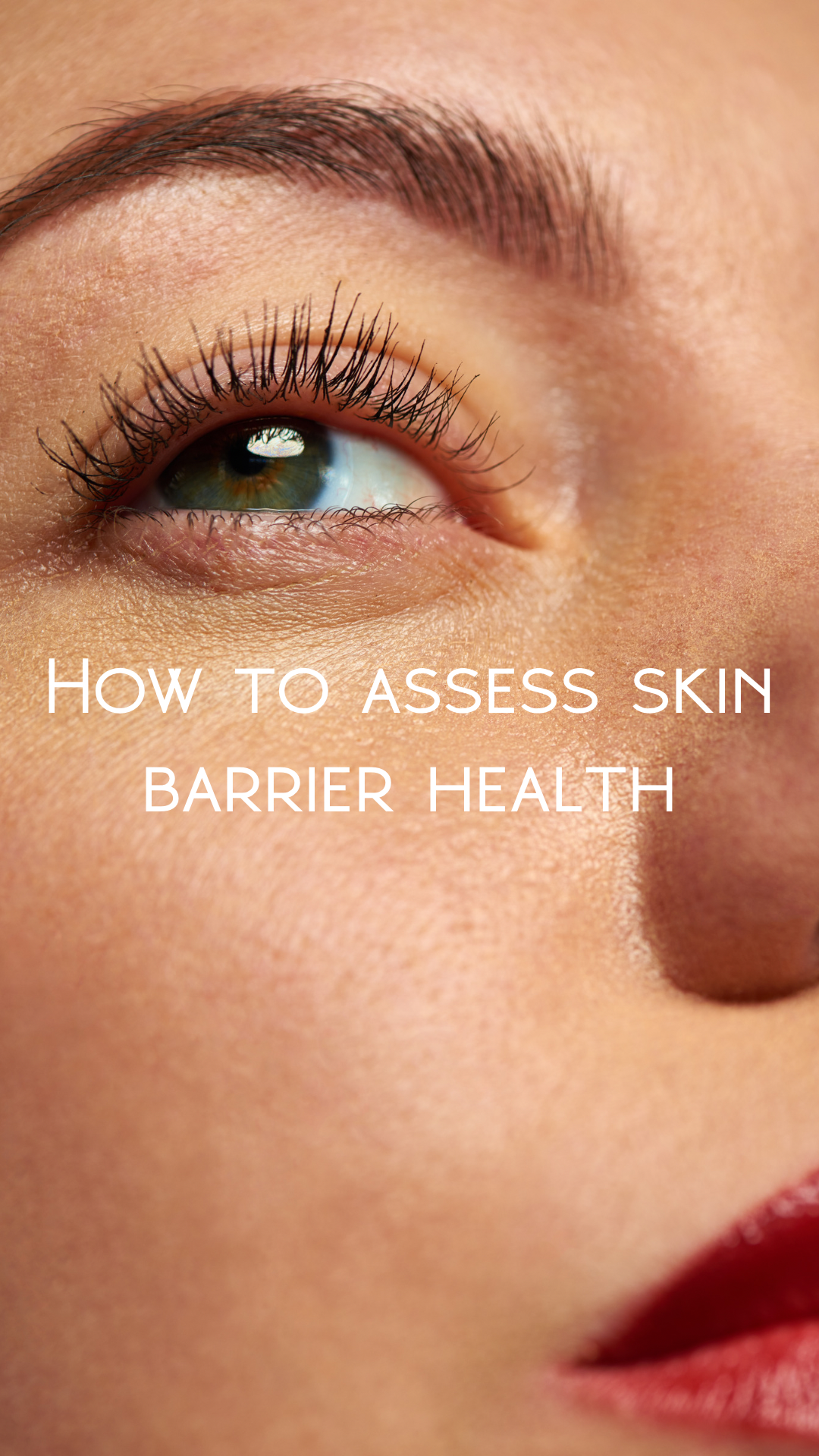Understanding the health of your skin barrier is essential for maintaining optimal skin function. In this blog post, we will explore simple techniques to help you determine if your skin barrier is impaired. By identifying signs of a compromised barrier, such as dryness, flaking, and crepiness, you can take appropriate steps to restore and protect your skin.
The Finger Hook Test:
An easy way to assess your skin barrier is by performing the finger hook test. Start by making a small hook shape with your finger and gently press it against your cheek, then lift it upwards. Healthy skin will retain its elasticity and bounce back, while an impaired skin barrier may exhibit crepiness or wrinkling upon lifting.
Compare the texture of your skin to the difference between a plump grape and a withered sultana. If you notice crepiness or lack of resilience, it could indicate a compromised skin barrier. Remember, this is a preliminary test, and it's recommended to consult a qualified skin therapist for an accurate evaluation.
Here is a video example of this test: Finger Hook Test.
Common Signs of a Compromised Barrier:
Aside from the finger hook test, several common signs can indicate an impaired skin barrier. These signs include dry elbows, dry kneecaps, cracked and dry heels, flaking skin, and chapped lips. When the skin barrier is compromised in one area, it often affects the overall condition of the skin everywhere else.
If you experience dryness, flaking, or discomfort in multiple areas of your body, it is likely that your skin barrier requires attention. These signs indicate that the protective layer of your skin is not functioning optimally, leading to moisture loss and vulnerability to external irritants.
Determining the health of your skin barrier is crucial for maintaining overall skin health. By performing the finger hook test and observing common signs of a compromised barrier, you can gain insight into the condition of your skin. Remember, while these tests provide initial indications, consulting a qualified skin therapist is recommended for a thorough evaluation and personalized guidance.
If you identify signs of a compromised barrier, take proactive steps to restore and protect your skin. Implement a skincare routine that focuses on gentle cleansing, moisturising, and the use of barrier-protective products. Additionally, consult with a skincare professional who can provide targeted treatments and recommendations based on your specific needs.
Regularly monitoring and nurturing your skin barrier will contribute to improved skin health, enhanced moisture retention, and a more resilient complexion. Prioritize the well-being of your skin barrier to maintain a healthy and vibrant appearance.

